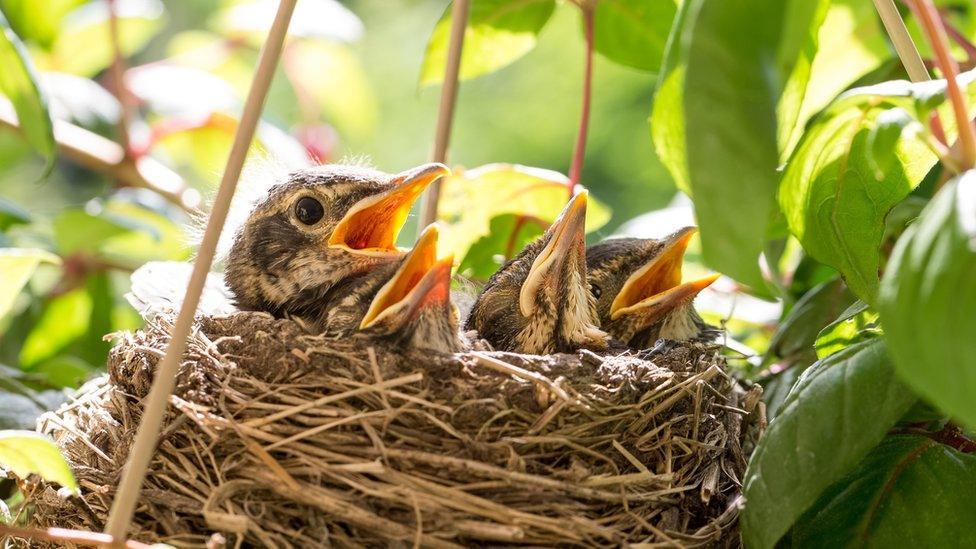Smokers butt out as birds nest in cigarette bin
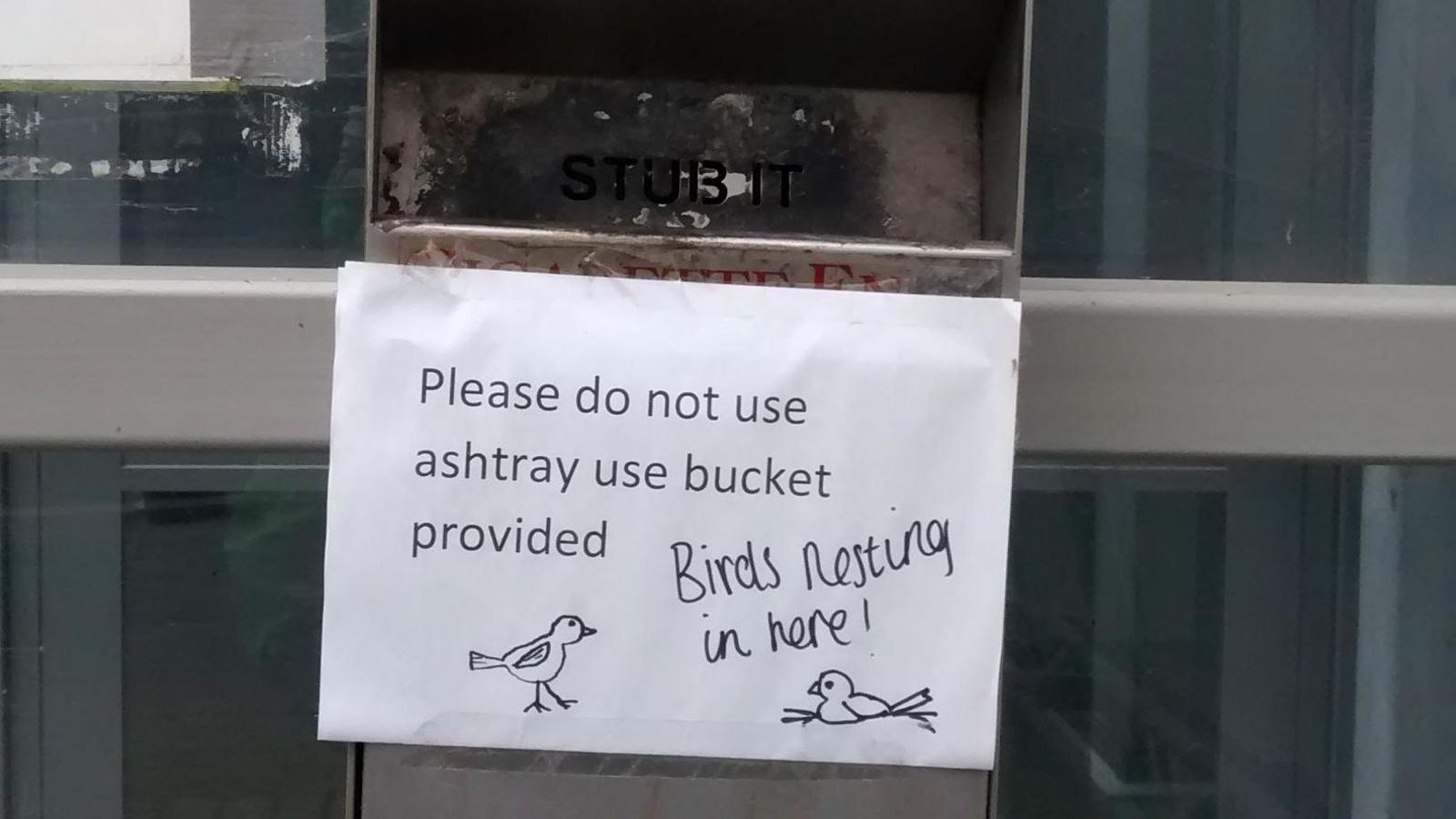
A warning notice was placed on the cigarette bin after the birds and eggs were found inside
- Published
A pair of blue tits forced smokers to dispose of their dog ends elsewhere after taking up residence in a cigarette bin.
The birds nested in the bin at Norwich Research Park, and a notice was attached asking smokers to use a bucket instead.
Healthcare technician Mark Pointer said a colleague alerted him to the nesting birds.
"As we got close to the cigarette box, a bird popped out, which I recognised as a blue tit," he said.
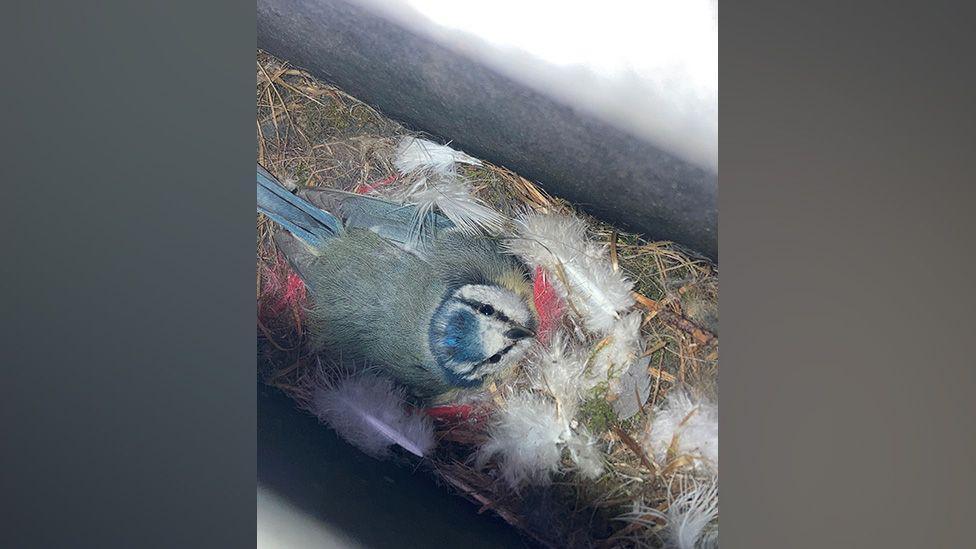
A blue tit turned a public cigarette bin into a nest for her chicks
The bin is in a smoking shelter at the park's Innovation Centre.
"Anyone who went down for a cigarette then stood to the other side of the shelter, and observed how the nesting materials went down, and then maybe 10 eggs went in there," said Mr Pointer.
"Obviously people kept away from it and only had a look inside when the birds had disappeared to see the eggs.
"And about 14 days later, they started hearing chicks and then the blue tits going in and out of the nest."
Mr Pointer said the chicks had now fledged and left the cigarette bin, but said staff enjoyed the experience of observing them.
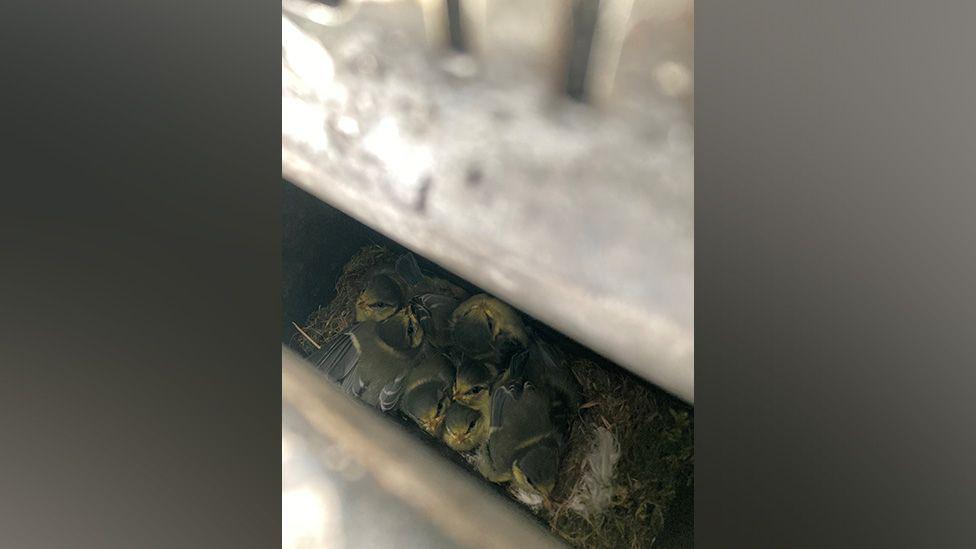
Some 10 eggs hatched in the bin
Mr Pointer has also discovered great tits nesting a traffic cone between some saplings in the work car park.
"I could hear these chicks crying for food and I was thinking 'Where are they?'" he said.
"Birds are very creative. This pair of great tits obviously made a nest in the bottom there.
"So they were basically going into the top of the cone, which had a hole in it, and they were feeding the chicks who were nestled at the bottom."
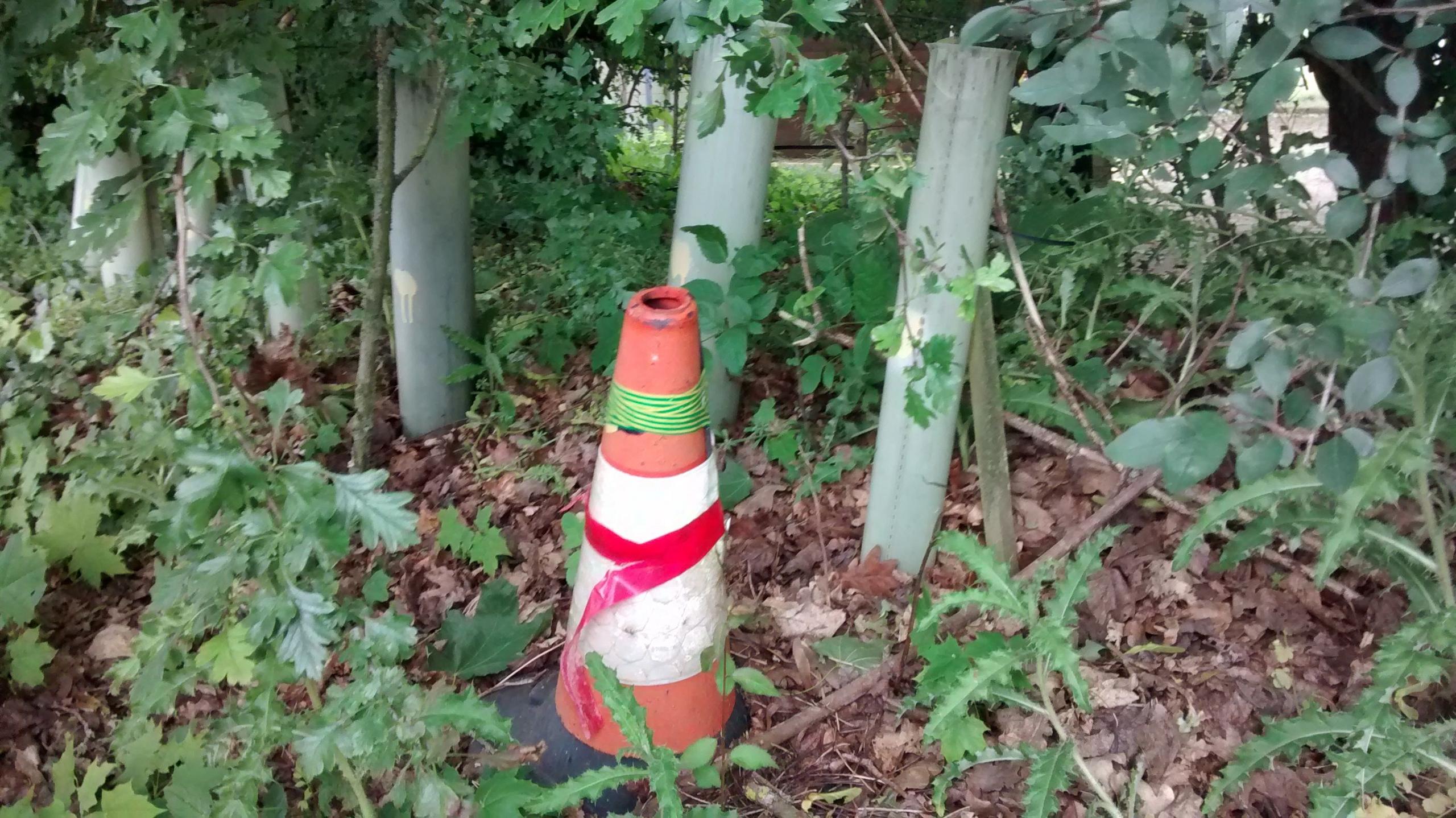
Mr Pointer also discovered some great tits using this cone as a nest for their chicks
He said he then put a notice near the cone and the birds successfully fledged at the weekend.
According to the RSPCA, external, in England and Wales all wild birds, their young, nests and eggs are protected under the Wildlife & Countryside Act 1981.
Any disturbance could kill or hurt the wild birds and their young - or cause them to abandon their nests, eggs and young.
Follow Norfolk news on Facebook, external, Instagram, external and X, external. Got a story? Email eastofenglandnews@bbc.co.uk, external or WhatsApp us on 0800 169 1830
More bird stories
- Published4 June 2024
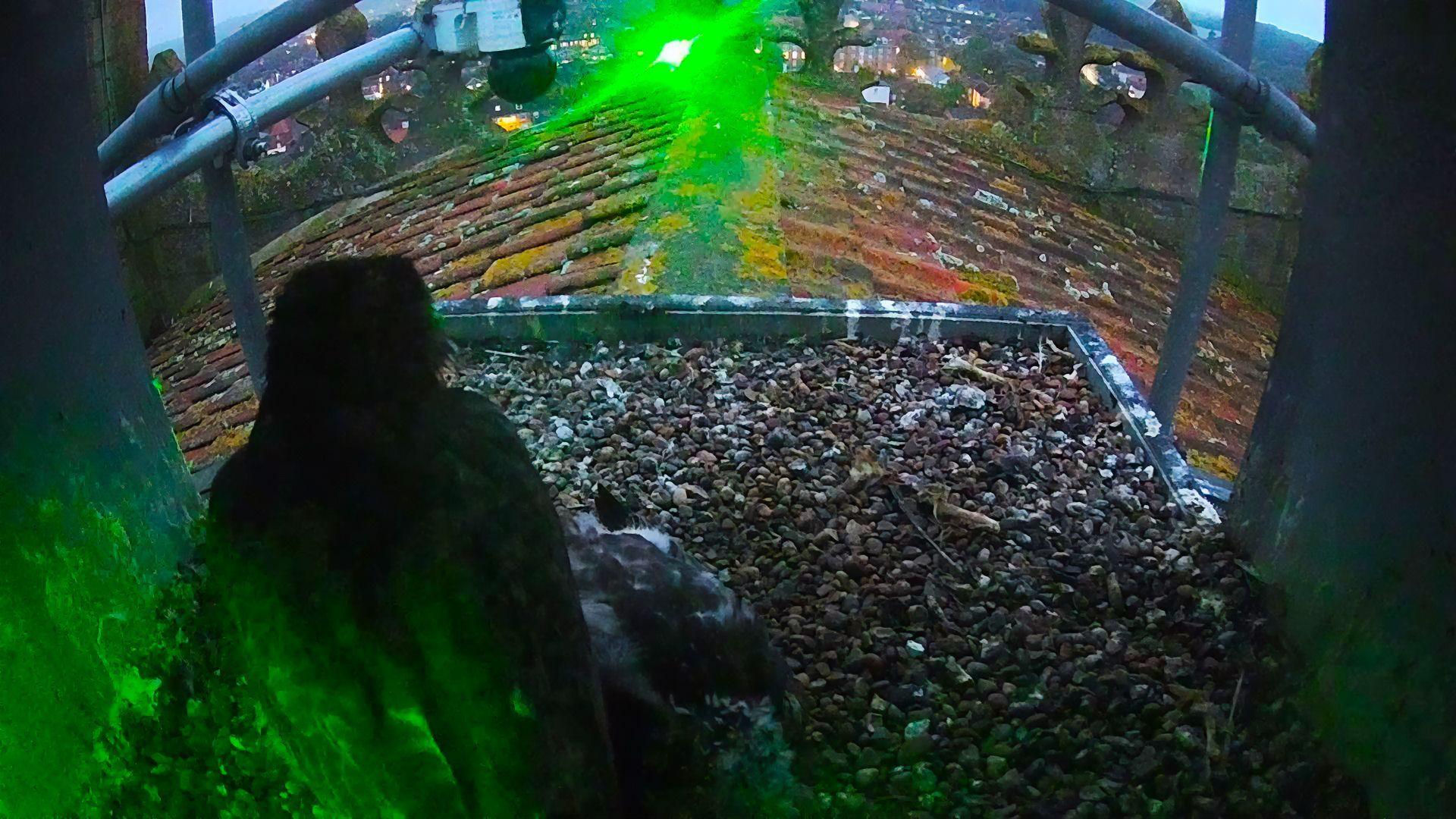
- Published4 June 2024
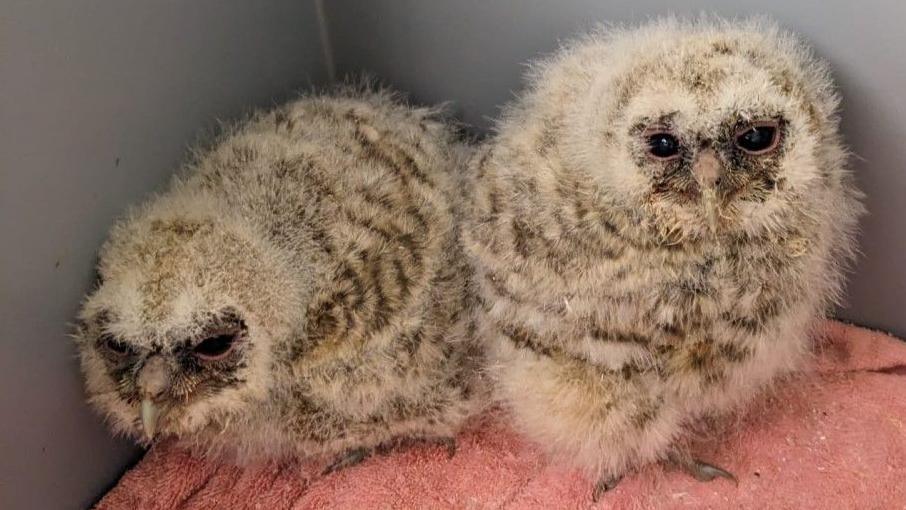
- Published7 April 2020
